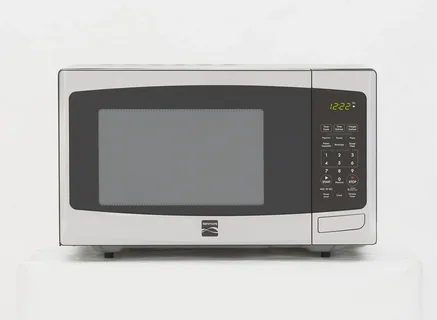Microwaves are a staple in nearly every household. From reheating leftovers to cooking full meals in minutes, they offer convenience that few other kitchen appliances can match. Yet, questions and concerns linger: Is your microwave making you sick? Myths vs facts—what’s the real story?
Let’s break down the misconceptions and uncover the truth behind microwave safety.
Common Myths About Microwaves
Myth 1: Microwaves Cause Cancer
One of the most widespread fears is that microwave ovens emit harmful radiation that can cause cancer. This belief is largely based on a misunderstanding of what “radiation” means.
Fact: Microwaves use non-ionizing radiation, which doesn’t have the energy to damage DNA or cells like ionizing radiation (e.g., X-rays). As long as the microwave is in good working condition and the door seals properly, it’s completely safe.
Myth 2: Microwaving Food Destroys Nutrients
Some people believe that cooking food in a microwave destroys its nutritional value more than other cooking methods.
Fact: All cooking methods can reduce nutrient content, especially water-soluble vitamins like vitamin C and B vitamins. However, because microwaves cook food faster and often with less water, they can actually help preserve nutrients better than boiling or frying.
Real Risks and How to Avoid Them
While most concerns are based on myths, there are a few legitimate risks if a microwave is used improperly.
Using Unsafe Containers
Plastic containers not labeled “microwave safe” can leach harmful chemicals like BPA into your food when heated.
Tip: Always use glass, ceramic, or BPA-free containers in the microwave to avoid this risk.
Uneven Heating Can Promote Bacteria Growth
Microwaves heat unevenly, which means parts of your food may remain undercooked, especially in large portions. This can leave harmful bacteria like Salmonella or E. coli alive.
Tip: Stir food halfway through cooking and ensure it’s heated to the recommended internal temperature, especially meat and leftovers.
Understanding Microwave Safety Features
Most modern microwaves come with built-in safety features like automatic shut-off, door sensors, and shielding to prevent radiation leaks. If you’re still wondering, “Is your microwave making you sick? Myths vs facts” provides a clear answer: when used correctly, your microwave is not a health hazard.
When to Replace Your Microwave
If your microwave door doesn’t close properly, is damaged, or you see sparks or smell burning, it’s time to replace it. A broken microwave can be a safety risk—not because of radiation, but due to fire hazards and poor performance.
Conclusion
So, is your microwave making you sick? Myths vs facts show that the vast majority of health concerns are unfounded. Microwaves are safe, efficient, and can even help preserve nutrients when used properly. While it’s important to be aware of potential risks like unsafe containers or uneven heating, following basic guidelines will keep your microwave use safe and worry-free.


